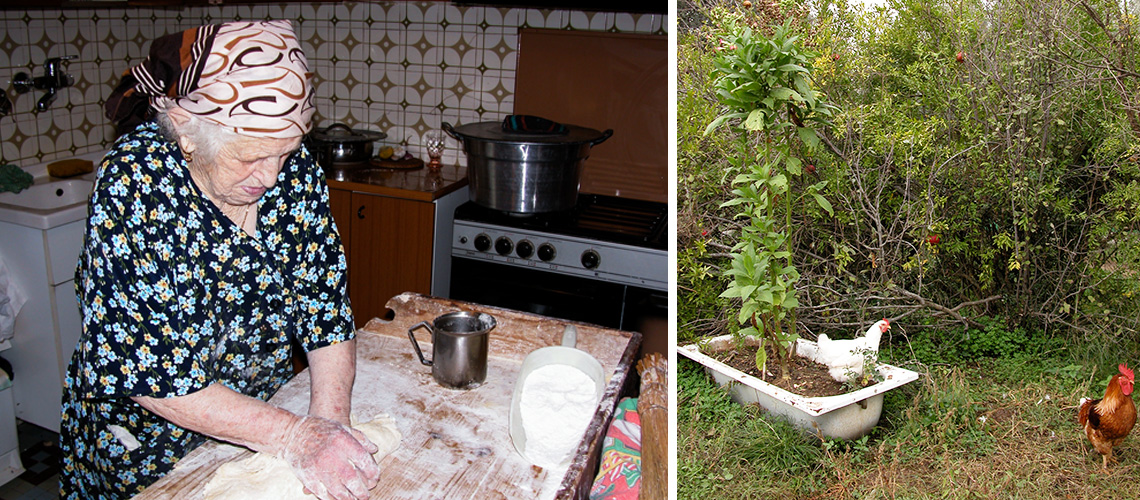At the top of the hill, almost at the end of a dirt road, I found an old man walking with his arms filled with wood. I introduced myself, and he said his name was Luciano. I asked if his wife, Armida, was home. “Sono il figlio!” “I’m her son!” Goodness me, I thought, Armida must be a very old anciana (female elder). Luciano kindly led me down the end of the road and into the house.
Armida was the only person there when I arrived, and was sitting on the kitchen sofa, blindly peeling potatoes with a small, serrated knife. Round and round, the thin strip of peel grew longer and floppier. The fingers on her left hand were touching, scanning the vegetable, making sure that she hadn’t missed any skin. She greeted me and motioned for me to come sit next to her. Together we kept peeling the freshly dug potatoes; we peeled enough potatoes for gnocchi to feed an army. I wondered who would be coming for lunch.
As the morning progressed, the kitchen began to fill with people and food. Family members and random middle-aged women came by to offer Armida a hand. Luciano brought in a dead chicken, then a basket full of eggs, leafy greens, tomatoes, and potatoes. A large rectangular wooden board appeared, covered with old wool blankets. Beneath the blankets were gooey puffs of rising dough that Armida was letting rest for focaccia. The word padrone was spoken under one woman’s breath. The padrone was apparently coming that day; everybody seemed to know about it, and wanted to help Armida prepare for it.
Armida’s padrone, I soon learned, was a shiny, suited lawyer from Milan, with slicked black hair. He was the owner of the land that she and her family had lived on for generations as his sharecroppers. He offered them the tiny, three-roomed house that Armida lived in, and use of his vast property and its products. In return, they had to maintain the orchards and the fields, and give him a part of their bounty. About once a month he would come down from Milan to check on his land, and collect Armida’s hot breads, dead chickens, olive oil, and whatever else happened to be ripe from her garden.
For most of her life, Armida actually cooked for an army’s worth of people on Sundays. Thirty or forty locals would come for lunch, bringing goods to contribute or exchange with one another. Her family and their friends lined up long tables under the olive trees, lingering for hours over her food. During World War II, army members stationed in the area often came, too. By the time I arrived for my first Sunday lunch with her, however, the typical number of guests had dwindled to ten or fifteen. Armida was now mostly blind, partially deaf, and missing all of her teeth. Perhaps this was why, as with our first gnocchi, she sometimes so drastically overestimated the quantity she needed to cook. Or perhaps she was simply still of the spirit that you just never know who is going to show up at your house with a good story and an empty stomach.





SHARE YOUR THOUGHTS